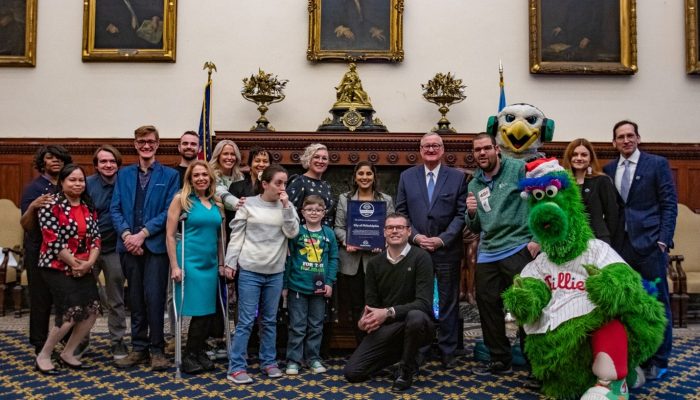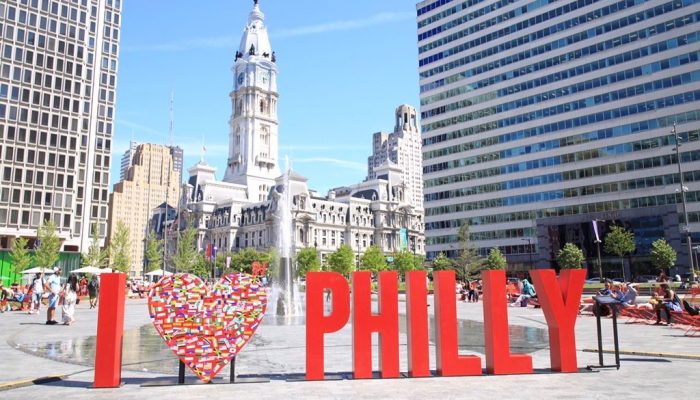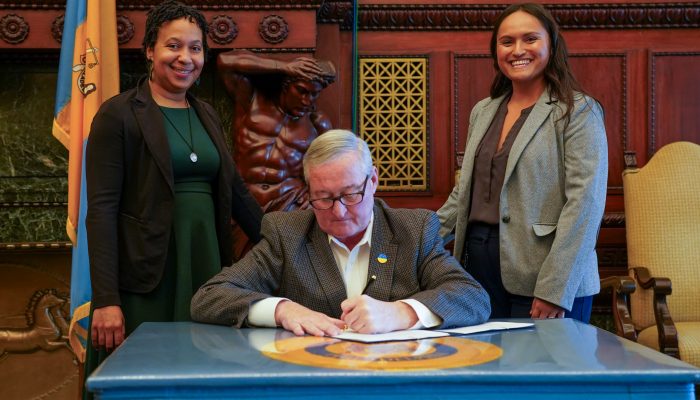This year the Budget Office continued to improve its “Budgeting for Racial Equity” approach in partnership with the Office of Diversity, Equity and Inclusion (ODEI), an external consulting firm, and other City departments.
The FY24 budget process included the following key activities:
- Racial Equity Questionnaires – All City departments were required to submit responses to specific racial equity-focused questions in their budget submissions.
- External Scoring Support – The City’s racial equity consultant, Equity & Results, scored each budget request and questionnaire using a racial equity rubric.
- Budget Equity Committee – The City appointed a committee of 50 City employees to assess budget requests for their racial equity impact.
- Community Engagement – The Budget Office held 26 community engagement sessions with 445 community members about the best way to spend City dollars on programs and services.
- Input from the ODEI – ODEI partnered with its sister offices, the Mayor’s Office for People with Disabilities and the Mayor’s Office for LGBT Affairs to attend all budget meetings, review all budget requests, and provide recommendations to prioritize equity.
- LeadershipOps Feedback – The City held dedicated input sessions with the Leadership Operations team. Like the Budget Equity Committee, this groups assessed budget requests for their racial equity impact.
These activities built upon last year’s FY23 budget process in a few ways. Here’s how:
Expanded into capital projects
Starting in the FY24 budget process, the Budget Office required the Racial Equity Questionnaire and external scoring for both operating and capital budgets. This means that the racial equity scoring tools were used to inform decisions about day-to-day operating costs, as well as long-term infrastructure investments in the City.
Increased size of the Budget Equity Committee
This year’s Budget Equity Committee grew to 50 members from 17 members in the FY23 budget process. Budget Equity Committee members came from all clusters of City offices. Additionally, the Budget Office prioritized hearing from voices that are not typically at the decision-making table. Budget Equity Committee members were appointed based on the diversity of identities, lived experiences, and staff roles they represented. The Budget Office also excluded department leadership from this committee and prioritized the inclusion of frontline and non-management staff.
New scoring from ODEI
In year’s past, ODEI has been included in annual budget meetings and provided general recommendations for budget priorities. For FY24, ODEI expanded its support by attending all budget meetings, reviewing all budget requests, and scoring budgets based on each request’s ability to improve lives for Philadelphians; feasibility; reliance on data to inform decisions; and ability to advance racial equity, accessibility, and equity for LGBTQ+ residents and employees.
We are excited about continuing “Budgeting for Racial Equity” year over year, and we are committed to continuing to improve the process each cycle.
Learn more about the Budgeting for Racial Equity strategies in our FY24 Summary.
Racial equity highlights from the FY24 budget
Each of these activities were important inputs for City decision-makers when developing the Mayor’s FY24 Budget Proposal. As a result of these inputs, the FY24 Budget proposal includes significant investments that were elevated by the “Budgeting for Racial Equity” process. Below are a few examples of investments included in Mayor Kenney’s FY24 Budget Proposal that have an explicit racial equity focus:
Preventing eviction: scaling Right to Counsel and illegal eviction response
This investment supports the Philadelphia Eviction Prevention Program (PEPP), scales the Right to Counsel program citywide, and creates a pilot program to support residents facing illegal evictions in the City. This builds on a growing network of resources for Philadelphia tenants facing eviction by providing legal aid, legal representation, education, financial counseling, and other response services to low-income tenants. A 2019 Reinvestment Fund Policy Brief found that predominantly African American neighborhoods in Philadelphia have a higher number of eviction filings than other neighborhoods when controlling for other key factors. This work aims to eliminate those racial gaps and provide support for Philadelphia tenants.
Stipends for group violence intervention program
This investment aims at tackling gun violence in Philadelphia by providing stipends to participants in the City’s Group Violence Intervention—creating stronger incentives for high-risk community members to attend and engage in the program. Data for 2022 and 2023 show shootings in Philadelphia are concentrated in predominantly Black or African American neighborhoods and communities of color, with over 75% of shooting victims in 2022 identified as Black (non-Hispanic). The Gun Violence Intervention program works to combat the disproportionate impacts of gun violence and has been highly effective. A recent evaluation by the University of Pennsylvania found the program produced significant reductions in group-member-involved gun violence at the group and neighborhood levels.
Environmental justice
This investment funds the Office of Sustainability’s Environmental Justice Advisory Commission to provide community-based commissioners with stipends and covers expenses needed to develop a community data screening tool. Additionally, this investment will provide direct funding to residents through the Environmental Justice and Community Resilience Fund. These efforts recognize the ways in which Philadelphia’s communities of color experience disproportionate harms from environmental impacts such as a lack of tree canopy, greater exposure to air pollution, increased risk of flooding, and food insecurity.
PHLConnectED
This investment sustains the PHLConnectED program within the Office of Innovation & Technology. This program is a citywide effort to ensure comprehensive and free internet access to K-12 families. Funding for this request will allow the City to continue connectivity services for 4,000 devices. This program launched in August 2020, and since then internet connectivity groups for all racial/ethnic groups in the City have improved and connectivity disparities have been reduced.
Learn more about the other programs and services in the FY24 Budget Proposal.




